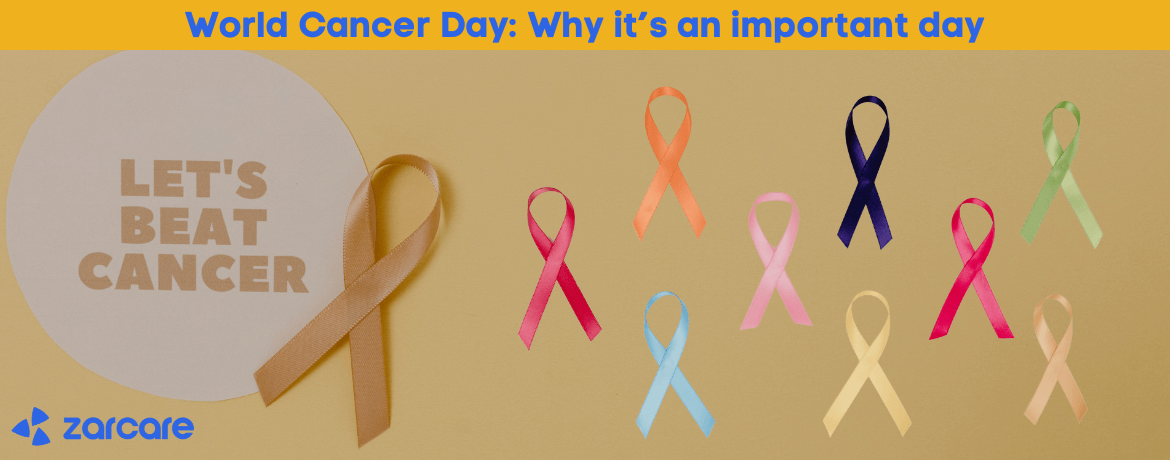World Cancer Day: Why It Matters More Than Ever

Every year, February 4th marks World Cancer Day—a global observance to raise awareness about cancer and its impact on individuals, families, and communities. In 2025, this day carries even greater significance as the world grapples with the health consequences of the COVID-19 pandemic and the evolving landscape of medical care. Cancer remains one of the most formidable challenges to public health. World Cancer Day aims to highlight the importance of early detection, improved treatments, and ongoing research in the fight against this deadly disease. This year, South Africa has made significant strides in cancer treatment and early detection. It has reduced mortality rates, making World Cancer Day an opportunity to reflect on the progress made in the country while acknowledging the challenges that remain. Cancer is the second-leading cause of death worldwide, accounting for nearly 10 million deaths in 2020. According to the World Health Organization (WHO), nearly one in six deaths globally is due to cancer. The figures are particularly alarming in low- and middle-income countries, where access to timely diagnosis, treatment, and palliative care is often limited. The global cancer burden is expected to grow by 60% by 2040, with increases in both incidence and mortality rates. World Cancer Day provides a global dialogue and action platform, urging governments, healthcare providers, and individuals to work together to reduce cancer stigma and foster greater access to life-saving treatments. The day also promotes the importance of cancer prevention, early detection, and reducing risk factors contributing to the disease. In South Africa, cancer remains a significant public health concern, with an increasing number of new cancer diagnoses each year. According to the National Cancer Registry, the most common cancers in South Africa include breast cancer, prostate cancer, and cervical cancer. While the number of cancer diagnoses continues to rise, the country has made notable improvements in cancer treatment, early detection, and public awareness, contributing to reductions in mortality rates for some cancer types. Over the past decade, South Africa has significantly improved access to advanced cancer treatment options. South African hospitals and healthcare facilities increasingly utilise cutting-edge technology such as radiotherapy, chemotherapy, and immunotherapy to treat various forms of cancer. One of the most important advancements is the growing availability of precision medicine—an innovative approach that tailors cancer treatments based on the tumour’s genetic profile. Leading research institutions and hospitals in South Africa are adopting precision medicine to target specific genetic mutations in cancer cells. This approach has improved treatment outcomes, reduced side effects, and provided more effective patient therapies. Moreover, expanding access to cancer care in urban and rural areas is a priority for the South African government. Efforts to increase the availability of radiotherapy centres, improve access to chemotherapy drugs, and support the training of healthcare professionals in the latest cancer treatments have all contributed to enhancing cancer care for South African patients. Early detection is one of the most critical aspects of successful cancer treatment. The earlier cancer is detected, the more likely treatment will be successful, leading to better patient outcomes. Several initiatives have been launched in South Africa to raise awareness about the importance of early detection and regular screening. For example, the South African government has introduced national breast and cervical cancer screening programs aimed at increasing access to early detection services for women. These programs are vital for reaching underserved communities where the prevalence of cancer may be higher due to a lack of awareness and resources. The South African National Cancer Registry also tracks cancer data nationwide to monitor trends, identify emerging risk factors, and guide interventions to reduce cancer incidence. Public health campaigns focusing on cancer prevention and the importance of early detection screening have played a crucial role in reducing mortality rates. While cancer remains a significant cause of death in South Africa, the country has observed positive trends in certain areas. For instance, mortality rates for breast cancer and cervical cancer have declined in recent years, primarily due to improved early detection and more effective treatments. According to the South African Medical Research Council (SAMRC), the country’s breast cancer survival rate has improved, reflecting these advancements in care. In conclusion, World Cancer Day highlights the ongoing global battle against cancer, especially in light of challenges from the COVID-19 pandemic. Cancer remains a leading cause of death worldwide, making awareness and early intervention crucial. South Africa has made significant strides in cancer treatment and early detection, including precision medicine and enhanced screening programs, reducing mortality rates for specific cancers. However, continued collaboration among governments, healthcare providers, and communities is necessary to alleviate the burden of cancer further and improve access to life-saving treatments for all.The Global Cancer Landscape
South Africa’s Progress in Cancer Treatment and Mortality Rates
Advances in Cancer Treatment
Early Detection and Screening
Reduction in Mortality Rates
